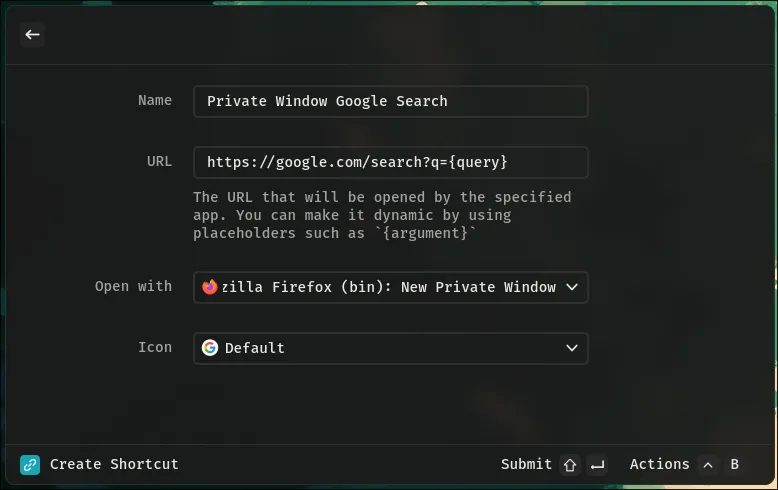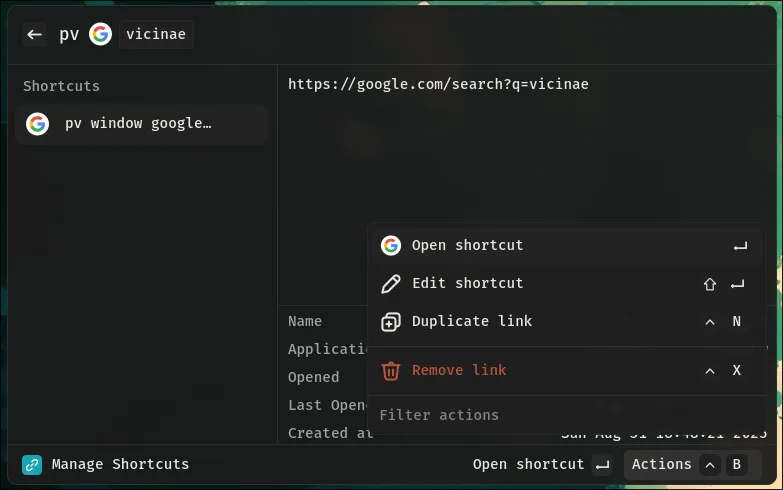Shortcuts
This page explains how to create, manage and use application shortcuts from within Vicinae.
Introduction
Shortcuts are provided as a way to quickly extend the root search with dynamic application shortcuts. If you are coming from Raycast, this is very close to their "quicklink" feature.
Some use cases include:
- Open an http url such as
https://google.com/search?q={query}where{query}is completed from within the launcher. Typically used for web search tasks. - Open any system application with a specific URI, for instance to open a VSCode workspace.
- Open a URL or application with the content of the clipboard (if text) provided as its first argument
And much, much more...

Create a shortcut
In order to create a shortcut, simply launch the Create Shortcut command:
- The name will be used to identify and index the shortcut in the root search
- The icon can be any Vicinae built-in icon, the opening application's icon, or a favicon if the URL field is a web URL.
The URL field doesn't have to be an http URL. It can be anything, such as a file path, arbitrary text...
Supported applications
As of now, all system applications can be used as shortcut openers.
On systems that use desktop files (all Linux systems), sub-actions are also made available as valid shortcut openers.
Thanks to that, it's easy to create a shortcut that specifically opens in a firefox private window:

Manage shortcuts
The Manage Shortcuts command lists all your existing shortcuts and allows you to open, edit, duplicate, or remove any shortcut from the list.
The preview shown on the right automatically updates as you start completing the arguments, making testing your shortcut easier.

Use as fallback command
All shortcuts that have exactly one argument are eligible to be selected as a fallback command.
An argument is a specific placeholder type that has to be explictly supplied in the search bar.
Automatically expanding placeholders such as {uuid} or {clipboard} do not count as arguments.